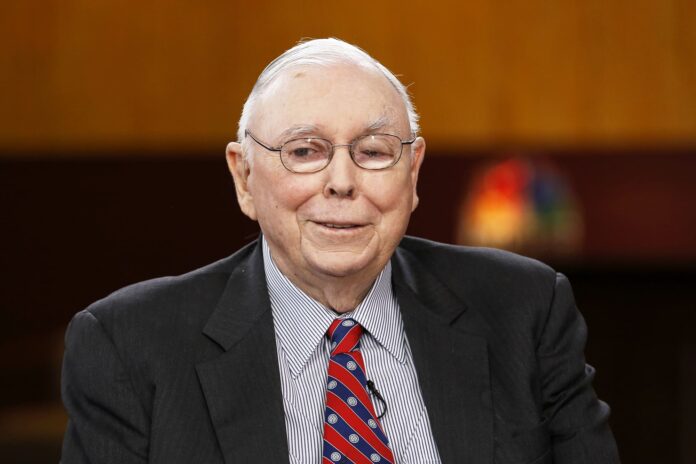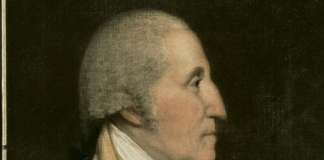Charles Munger, the visionary billionaire and vice chairman of Berkshire Hathaway, passed away at the age of 99 in Santa Barbara, California. Munger, often regarded as Warren Buffett’s alter-ego, played a pivotal role in transforming Berkshire Hathaway from a struggling textile company into a global investment powerhouse. This article delves into the life, influence, and legacy of Charles T. Munger, exploring his impact on Berkshire Hathaway and the investment world.
I. The Early Years of Charles T. Munger
Charles Thomas Munger, born on January 1, 1924, in Omaha, Nebraska, had humble beginnings. The son of a lawyer, he initially worked in a grocery store owned by Warren Buffett’s grandfather. Munger’s journey took a turn with his enlistment in the Army Air Corps during World War II, where he honed skills that would later prove instrumental in his business success.
II. A Remarkable Partnership with Warren Buffett
Munger’s path crossed with Warren Buffett’s in a serendipitous encounter in Omaha. Their partnership, spanning over 50 years, led to the creation of one of the most successful conglomerates in history. While Buffett basked in the limelight, Munger’s influence exceeded his title of vice chairman. Munger’s advice to “buy wonderful businesses at fair prices” laid the foundation for Berkshire Hathaway’s distinctive investing approach.
III. The Architect of Berkshire Hathaway’s Success
Munger, often described as the moral compass of Berkshire Hathaway, was the architect behind the company’s enduring success. His counsel extended beyond investments to personnel matters. His hiring philosophy, “Trust first, ability second,” reflected his commitment to integrity and character in business.
IV. Mungerisms: Witty Wisdom of Charles T. Munger
Munger’s erudition and wit were evident in his memorable maxims, aptly named Mungerisms. These succinct expressions of wisdom touched on various aspects of life and business, making him not only a financial guru but also a source of practical and philosophical insights.
V. Building Berkshire: A Conglomerate Like No Other
Charles T. Munger, alongside Warren Buffett, played a pivotal role in shaping Berkshire Hathaway into a conglomerate that stands unparalleled in the business world. The journey of building Berkshire was marked by strategic acquisitions, distinctive investment philosophies, and a commitment to long-term value creation.
A. The Foundation of Berkshire Hathaway
Berkshire Hathaway’s roots trace back to a struggling New England textile company. Buffett, initially drawn to the company as an investment opportunity, soon realized the limitations of the textile industry. Under the guidance of Munger, the decision was made to transform Berkshire into an investment holding company.
B. Munger’s Investing Philosophy: Buy Wonderful Businesses at Fair Prices
Munger’s profound influence on Berkshire’s investment philosophy was encapsulated in the idea of “buying wonderful businesses at fair prices.” This strategic shift marked a departure from Buffett’s earlier approach of buying distressed companies at deep discounts. The focus shifted to acquiring companies with strong brand names and sustainable competitive advantages.
C. Iconic Holdings and Diverse Portfolio
Under the leadership of Munger and Buffett, Berkshire diversified its holdings, creating a portfolio that spans various industries. Notable acquisitions include Geico, the insurance giant; Burlington Northern Santa Fe, a major railroad company; and substantial stakes in Coca-Cola, American Express, IBM, and Wells Fargo.
D. The Woodstock of Capitalism: Berkshire’s Annual Meetings
The annual meetings of Berkshire Hathaway in Omaha, often referred to as the Woodstock of Capitalism, became legendary. Munger and Buffett, in their candid and insightful discussions, shared their investment wisdom with tens of thousands of shareholders. The meetings symbolized the transparency and openness that defined Berkshire’s corporate culture.
E. Mungerisms: Wisdom Beyond Numbers
Munger’s unique wit and wisdom, encapsulated in Mungerisms, became synonymous with Berkshire’s culture. These succinct expressions reflected not only financial acumen but also a broader perspective on life and business. Shareholders and business enthusiasts alike were captivated by Munger’s ability to distill complex ideas into memorable phrases.
F. Beyond Financials: Berkshire’s Stake in Newspapers and Daily Journal Corporation
Berkshire’s influence extended beyond traditional investments. Munger, serving as the chairman of the Daily Journal Corporation, showcased the conglomerate’s interest in the media industry. Investments in newspapers, including The Washington Post and The Buffalo News, added a layer of diversity to Berkshire’s expansive portfolio.
G. Munger’s Impact on Operational Excellence
Munger’s influence on Berkshire extended to operational aspects, emphasizing the importance of integrity and character in personnel matters. His hiring philosophy, “Trust first, ability second,” underscored the significance of ethical business practices within the conglomerate.
VI. Munger’s Unconventional Philanthropy
Munger’s philanthropic endeavors extended beyond conventional norms. His passion for architecture led to substantial donations to university architecture projects, including the Kavli Institute for Theoretical Physics. Despite his immense wealth, Munger refrained from joining the Giving Pledge, citing his adherence to his late wife’s wishes.
VII. Legacy and Lessons
Charles T. Munger’s legacy goes beyond the financial realm. His life, marked by resilience and wisdom, offers valuable lessons for aspiring investors and business leaders. Munger’s ability to adapt, his unwavering commitment to ethical business practices, and his philanthropic contributions leave an indelible mark on the world of finance and beyond.
VIII. Active Legacy: Munger’s Impact Beyond Berkshire
Munger remained active in Berkshire Hathaway and served as the chairman of Good Samaritan Hospital in Los Angeles well into his 90s. His political stance as a Republican and vocal support for Planned Parenthood showcased his engagement with societal issues beyond the business realm.
IX. Reflections and Remembrances
As the world mourns the loss of Charles T. Munger, reflections pour in from those who were influenced by his wisdom and wit. Colleagues, investors, and business leaders share anecdotes and tributes, highlighting Munger’s enduring impact on the business and investment community.
X. Conclusion: A Lasting Legacy
In the passing of Charles T. Munger, the world bids farewell to a business luminary whose influence transcends generations. His collaborative journey with Warren Buffett, the Mungerisms that echo in boardrooms, and his unconventional philanthropy collectively define a legacy that will be remembered and studied for years to come. Charles T. Munger leaves behind not just a financial empire but a blueprint for ethical and successful business leadership.
This exploration of Charles T. Munger’s life and legacy aims to capture the essence of a man who, despite playing second fiddle to Warren Buffett, orchestrated a symphony of success that resonates far beyond the realm of finance.










